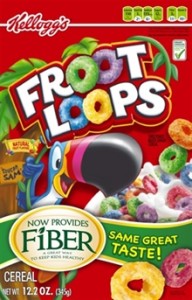You don’t like Smart Choices? Act now!
I’ve just been contacted by Mike Smith of Change.org. This group is organizing a letter-writing campaign about the Smart Choices program. You don’t know what this is about? See previous posts. Here’s what he says:
At Change.org we are also outraged by the Smart Choices program and are concerned that members of the American Dietetic Association and nutrition experts are allied with Smart Choices, happy to mislead the public about what constitutes a healthy / smart choice. We’ve already had 3,000 people email the Smart Choices panel demanding they stop shilling for Kellogg’s and better support consumers in this action campaign…We’ve had big successes in the recent weeks — we got the Department of Labor to release its list of slave made goods to consumers, had Chipotle agree to better rights for their tomato farmers, and persuaded Live Nation to cancel concerts by an anti-gay musician. Having you on board will hopefully tip the balance and encourage the Smart Choices board to make crucial changes that won’t allow Froot Loops to be presented as a Smart Choice.
How about adding your voice to the protest against the Smart Choices program, or what has now become known as the “Better than a Doughnut” program? It’s easy to do. Just click on this link. Thanks Mike.
Update September 18: Here’s another good reason to be concerned about this program. It was paid for by industry to the tune of $1.47 million, according to Forbes.



